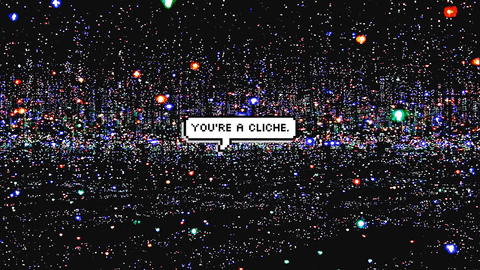200 UP; The non-endemic sponsor problem; Multi club ownership 2.0; What if, Sky bought The Hundred; Esport cliches; TEAM within a team; The programmatic lever; That Merson documentary
The newsletter of the podcast.
Join the thousands of people who subscribe to Unofficial Partner.
We publish two podcasts each week, on Tuesday and Friday.
These are deep conversations with smart people from inside and outside sport.
This newsletter is our way of picking up the threads, and is published every Thursday.
Our entire back catalogue of 180 sports business conversations are available free of charge here.
Each pod is available on Apple, Spotify, Google, Stitcher and every podcast app.
If you’re interested in collaborating with Unofficial Partner to create one-off podcasts or series, you can reach us by replying to this email.
Esports Economics and the sponsor as necessary evil
Episode 2 of Esport Economics with Nielsen Sports dropped this week. Guests were Carlos Alimurung, CEO of One Esports, the JV between One Sports and Dentsu, and Nick Bryant, Nielsen’s VP of Consulting in Asia.
The series seeks to hold some of the cliches that surround esports up to the light.
One of these is that Gen Z is more receptive to commercial messages than their parents.
This story purports that the gamer is a sophisticated consumer because they’ve grown up with embedded brand messages and appreciate sponsors who play an authentic role in their worlds.
I suspect this is mainly bullshit, and is in reality a supply side rationale for the almost entirely unwelcome gatecrashing of content by brands, enabled by digital.
(See also: Murketing, coined by Rob Walker in his book Buying In: The Secret Dialogue Between What We Buy and Who We Are, which I recommend highly).
The authentic role is far easier if your product is used by the people doing the actual sport; So Nike and Adidas, or in esports, the tech and the consoles.
The gloomy reality for most non-endemics might be this: Being deemed ‘A Necessary Evil’ is the most a non-endemic sponsor can hope for.
See also, Ed Warner’s definition of the role of NGBs: ‘the most you can wish for is not to be hated’.
The CMO’s levers and the sponsorship v programmatic argument
The necessary evil story of sponsorship is, obviously, hated by the sponsorship industry because it is a step away from this question:
Why don’t we just buy the audience on programmatic?
As in: I’m the CMO of a bank/car/insurance brand and need to hit 16 year olds because they’ll stay with me for most of their adult lives.
Should I target the demographic on a programmatic advertising exchange, or sponsor The International?
This scenario positions the CMO at the controls, pondering which marketing levers will work best.
This can be represented in two ways.
It can be thrillingly futuristic:
Or insultingly rudimentary:
But either way, there’s a limit to the lever analogy when applied to something as messy as the manipulation of human behaviour, aka marketing.
In engineering, a lever is pulled and SOMETHING IS GUARANTEED TO HAPPEN.
Whereas in marketing, a lever can be pulled AND LITERALLY NOTHING HAPPENS.
Multi Club Ownership poses some big questions
The UP podcast with Paul Conway of Pacific Media Group popped out of the #Sportsbiz bubble and in to the broader football Twittersphere.
Patrick Massey was my co-host for that episode and he’s written a really good piece that asks several very big questions. Have a look here.
It feels like we are at the beginning of a cycle. There is an influx of new owners setting up multi-club models in pursuit of exploiting commercial and operational inefficiencies, with the likes of Redbird FC, Pacific Media Group, Pozzo family, and Red Bull Group leading the way. What happens next? Will we see consolidation with the most successful groups becoming bigger and dominating the market? And if so, what will be the sources of long-term competitive advantage?
‘An accommodation with the talent’
This was Nic Coward’s phrase on stage at Leaders during last week’s UP Billion Dollar Brainstorm.
His point was that to build a sport today, you’d be advised to bypass the team layer and do a deal with the leading players.
Team franchises are just one more link in the chain, and the more links the less money we - the event organisers in the Billion Dollar Brainstorm scenario - get to pocket ourselves.
Think of esports publishers. They own their worlds. The teams are renting. The ‘accommodation with the talent’ would link publisher to streamer, bypassing team brands.
Likewise, The Hundred.
I thought I was being clever when I asked Tom Harrison a question about franchises.
My prior assumption was that the ECB would seek to build The Hundred by offering a multi club model opportunity for the IPL franchise owners.
The brainstorm whiteboard would have a line connecting The Hundred to the Royal Challengers Bangalore and then finally, to Virat Kohli.
But I realise, not for the first time, that Coward is several steps ahead of me.
To get Kohli - a proxy for the best Indian players and their gigantic personal fan bases - the ECB can just jump to the player and ‘make an accommodation with the talent’.
This gets to the nub. The players bring the fans and, unlike European football, as a unit of affiliation the team brands are new and weak .
And building team fandoms is hard graft and expensive. So, why bother.
The counter is, players are short term assets, whereas team brands endure.
But does anyone really care about the medium-to-long term in today’s sports marketplace? The incentives are short term: Fail fast, move fast break things, get rich quick, there’s no such thing as a five year plan…yada yada yada.
And with that backdrop, what will The Hundred look like in five years time?
The Hundred: What’s in it for Sky?
If the above analysis is somewhere close, there’s another bit of the jigsaw to think about, which is ownership of the tournament.
On last week’s podcast, I asked Rob Calder of the ECB about the media partnership that saw the tournament co-published by Sky and the BBC.
Which leads to a question: why would Sky Sports do a deal with the BBC to cross promote The Hundred?
I can see why the BBC and the ECB would do it, but what’s in it for Sky?
Calder mentioned the idea emerged from Sky Labs, the broadcaster’s internal future gazing unit.
And yes, I get that the BBC’s reach is good advertising for Sky’s cricket coverage.
But that feels thin.
My bet?
Sky (Comcast) will buy in and become joint owners of The Hundred.
This does three things.
It gives the ECB a credible long term media partner. They use the money to placate the rest of the cricket family at home and a platform to build the product internationally.
It gives Sky ownership of the property and a route out of the dead money of the rights (aka rental) market, which it has been seeking for many years.
The BBC’s role is to give The Hundred as big a reach as possible, at least initially, landing the product in the sports market place and the national consciousness. The controversial bit is whether the state funded Beeb should be building value for Sky/Comcast shareholders over the longer term.
Anyway, that’s where I’m at. Views welcome.
Marketing as trickery
When I reference betting on the podcast, I often avoid the should they? question.
I do this because I want to know how it works, what is in the head of the people on the supply side, and I try to pick up on the euphemisms they use when discussing how they use data to attract and keep customers.
If I ask about the ethics of the marketing industry, the guest almost always goes in to a pre-prepared spiel about personal freedom and seek to close the conversation down.
But.
There’s a limit to this approach, highlighted by the Paul Merson documentary aired on BBC this week, which went directly to the ‘Should they?’ question, with remarkable results.
In particular, Merson’s meeting with people who’ve lost loved ones to suicide was extraordinarily powerful.
And there’s a bit where a data analyst shows him how betting firms use tracking info to trigger addictive behaviours.
This made the former footballer ask questions, perhaps for the first time, about where the fault lies for his own gambling addiction.
For most of his adult life, Merson had assumed it was his own fault for being weak, a burden of self loathing he carried with him every day.
Now he was being shown another side to his own story, in which addicts are manipulated by coldly rational decisions made by people working for the betting brands.
I don’t have an answer, but one thing’s for sure, seen through this lens, the ‘marketing industry’ sure looked guilty of something.
And more than any other industry sector, they know that perception and reality are hard to separate.
See also:


TEAM within a team
Whether there’s a bigger pot of gold to be mined from UEFA’s portfolio is a question above my pay grade. (HT to Martin Ross of SportBusiness for breaking the story btw).
But I’d wager that whatever happens, the people running TEAM will be the ones who get to answer it. Whether that’s under their current brand, or a.nother is a question posed by Paul Nicholas here:
What seems more likely is that UEFA and the European Club Association (ECA) – the ECA will inevitably have a significant role in the decision making as it is their clubs that generate the money for UEFA – will look for a situation where rights representation becomes more of a joint venture with in-house expertise handling core functions, but working with an agency or agencies.
One industry insider told Insideworldfootball that “changing agency altogether is loaded with risk. What you can expect to see is clubs (via the ECA representation at UEFA – PSG’s and vein Sports’ Nasser Al-Khelaifi is on UEFA’s board) getting greater control as part of the evolution. UEFA will have to work with this but it will mean that once clubs have enough control they will find it harder to question anymore.”
TEAM built the most envied commercial model in sport: If you don’t know how it works, listen to one of the blokes who built it.
200 UP
This week’s podcast was number 200.
Our first guest was Paul Hawksbee, sports radio doyen, Harry Hill scriptwriter, Fantasy Football producer and #COYS season ticket holder, who’s had to put up with sitting next to Sean for the last twenty odd years.
At some point I’ll do a chin stroking piece on what we’ve learnt along the way.
But for now, me and Sean just want to say how much fun we’ve had, how excited we are about the next 200, and to take a moment to just say thank you for all your interest and support along the way, it’s much appreciated.










